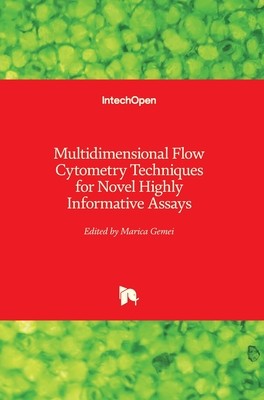
- We will send in 10–14 business days.
- Publisher: IntechOpen
- Year: 2018
- Pages: 108
- ISBN-10: 1789233445
- ISBN-13: 9781789233445
- Format: 17 x 24.4 x 0.8 cm, kieti viršeliai
- Language: English
- SAVE -10% with code: EXTRA
Multidimensional Flow Cytometry Techniques for Novel Highly Informative Assays (e-book) (used book) | bookbook.eu
Reviews
Description
Flow cytometry's informative potential has been underestimated for many years because of a lack of adequate instruments, automation, reagents, and know-how to approach, integrate, and also substitute other techniques giving single information per assay. In the last decade, flow cytometers have become capable of performing high-throughput screening and high content analysis, evaluating tens of different samples' features in a single run up to 1536 formats on multiple cell populations. The introduction of imaging flow cytometry has filled the gap between flow cytometry and conventional high content imaging screening, putting flow cytometry at the center of many laboratories, which can now cover with a single instrument the vast majority of needs in research programs. The flow cytometry community is a multidisciplinary and diversified group with many different interests and fields of action. These characteristics have prompted the evolution of the techniques, applications, and instruments that allow the use of complex, sophisticated, and standardized and reliable flow cytometric assays in academic and industrial programs.
EXTRA 10 % discount with code: EXTRA
The promotion ends in 21d.02:16:05
The discount code is valid when purchasing from 10 €. Discounts do not stack.
- Publisher: IntechOpen
- Year: 2018
- Pages: 108
- ISBN-10: 1789233445
- ISBN-13: 9781789233445
- Format: 17 x 24.4 x 0.8 cm, kieti viršeliai
- Language: English English
Flow cytometry's informative potential has been underestimated for many years because of a lack of adequate instruments, automation, reagents, and know-how to approach, integrate, and also substitute other techniques giving single information per assay. In the last decade, flow cytometers have become capable of performing high-throughput screening and high content analysis, evaluating tens of different samples' features in a single run up to 1536 formats on multiple cell populations. The introduction of imaging flow cytometry has filled the gap between flow cytometry and conventional high content imaging screening, putting flow cytometry at the center of many laboratories, which can now cover with a single instrument the vast majority of needs in research programs. The flow cytometry community is a multidisciplinary and diversified group with many different interests and fields of action. These characteristics have prompted the evolution of the techniques, applications, and instruments that allow the use of complex, sophisticated, and standardized and reliable flow cytometric assays in academic and industrial programs.


Reviews